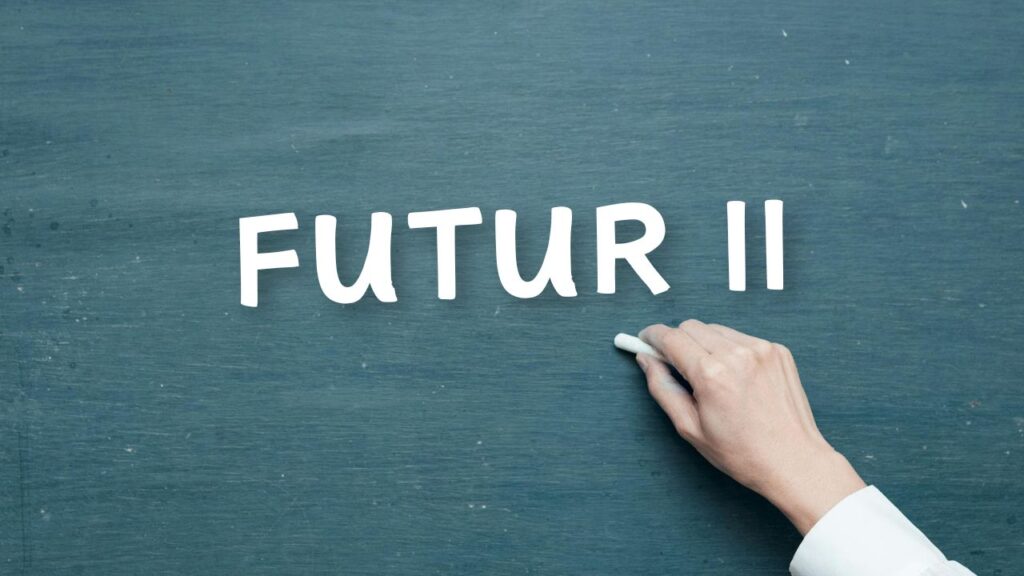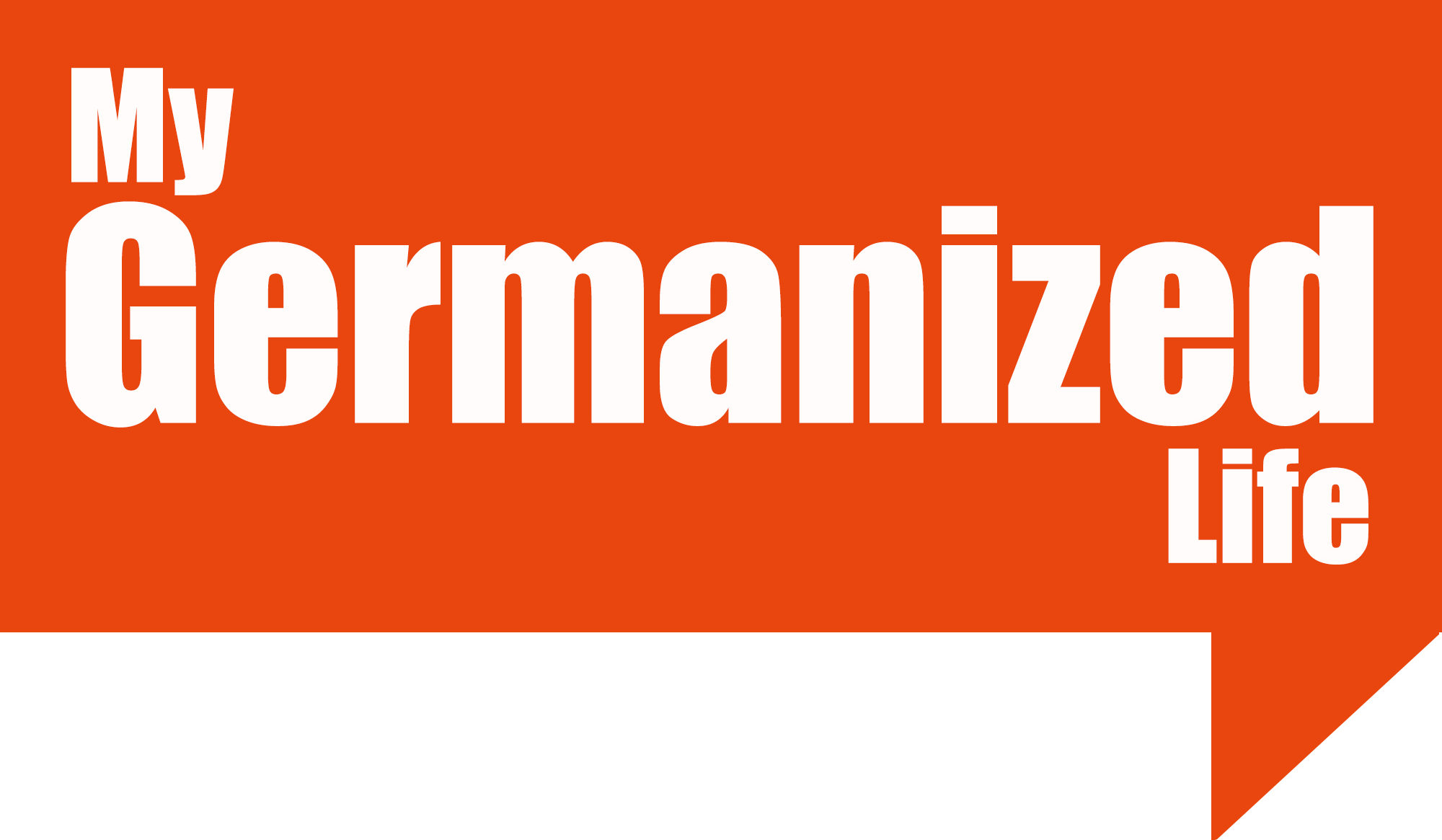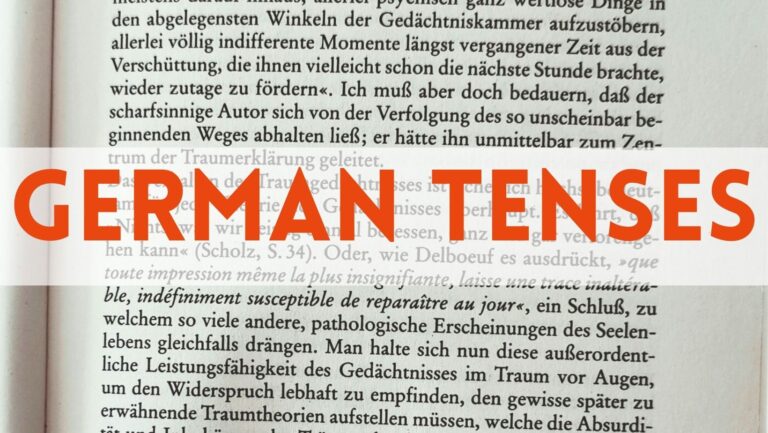
Want to talk about actions that will already be completed in the future? That’s where the German Future II (Futur II) tense shines! It’s like saying, “I will have finished” in English. Let’s break it down in a fun, simple way.
When Should You Use the German Future II Tense?
Futur II helps you express completed future actions, assumptions about future events, or expectations. Here’s how:
| Use Case | Example (German) | Example (English) |
| Talking about completed actions | Ich werde die Arbeit erledigt haben. | I will have finished the work. |
| Making assumptions about the future | Er wird das Buch gelesen haben. | He will have read the book. |
| Expressing expectations | Wir werden angekommen sein. | We will have arrived. |
When Germans Really Use Futur II
- Expecting something to be done: Du wirst die E-Mail geschrieben haben. (You will have written the email.)
- Guessing about past events: Sie wird nach Hause gegangen sein. (She has probably gone home.)
- Setting deadlines: Bis morgen werde ich den Bericht fertiggestellt haben. (By tomorrow, I will have completed the report.)
How to Build a German Future II Sentence
The formula:
Werden (a helper verb) + past participle + auxiliary verb (haben/sein).
- Werden is conjugated and takes the second position.
- The past participle goes toward the end.
- Haben/sein (in infinitive form) lands at the very end.
Structure: Subject + werden (conjugated) + other details + past participle + haben/sein (infinitive)
Conjugation of “werden”
| Pronoun | Werden Form | Example |
| ich | werde | Ich werde gearbeitet haben. (I will have worked.) |
| du | wirst | Du wirst das Auto repariert haben. (You will have repaired the car.) |
| er/sie/es | wird | Er wird das Essen gekocht haben. (He will have cooked the food.) |
| wir | werden | Wir werden angekommen sein. (We will have arrived.) |
| ihr | werdet | Ihr werdet den Film gesehen haben. (You all will have seen the movie.) |
| sie/Sie | werden | Sie werden ihre Hausaufgaben gemacht haben. (They/You will have done their/your homework.) |
Haben or Sein?
- Use haben for most verbs.
- Use sein for verbs indicating movement (gehen, fahren) or change of state (aufstehen, sterben).
Examples:
- Ich werde bis dann alles erledigt haben. (I will have finished everything by then.)
- Sie wird nach Hause gekommen sein. (She will have come home.)
Questions? Just Flip the Subject and Werden
Turning statements into questions follows the same rule as in Futur I—just switch the subject and werden!
Yes/No Questions:
- Wirst du bis Freitag fertig sein? (Will you have finished by Friday?)
- Wird er das Paket erhalten haben? (Will he have received the package?)
Structure: Werden (conjugated) + subject + other details + past participle + haben/sein (infinitive)
Wh- Questions:
- Wann wirst du angekommen sein? (When will you have arrived?)
- Warum wird sie ihre Arbeit beendet haben? (Why will she have finished her work?)
- Wo werden sie das Auto geparkt haben? (Where will they have parked the car?)
💡 Tip: The question word comes first, followed by the conjugated werden, then the subject.
Test Yourself: Fill in the Blanks!
Final Thoughts on the German Futur II
The German Futur II tense is essential for talking about completed future actions, making assumptions about the past, and expressing expectations. While it’s not used as often in casual speech, mastering it will take your German skills to the next level.
Remember: werden + past participle + haben/sein is the key formula. With practice, forming Futur II sentences will feel natural!
Keep going, challenge yourself with more sentences, and soon you’ll confidently talk about what will have happened—all in German. Viel Erfolg!




I really enjoy reading on this internet site, it has got great content.